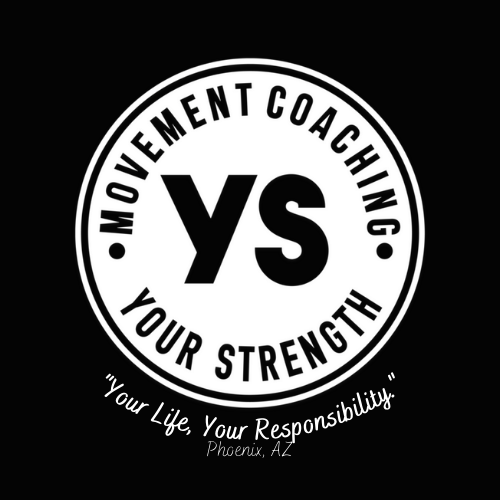The Importance of Timing Your Nutrition Around Exercise
The Importance of Timing Your Nutrition Around Exercise
Fueling your body for exercise is crucial to both performance and recovery. Just like you would fuel your car before a long drive, your body also needs the right nutrients at the right time to maximize efficiency, performance, and muscle preservation. In this blog, we’ll explore the best strategies for eating before, during, and after exercise, drawing on insights from experts like Nancy Clark and Stacy Sims.
Pre-Exercise Fueling: Preparing Your Body for Performance
Eating before exercise has five key benefits: it helps prevent low blood sugar, keeps your stomach settled, fuels your metabolism, supports muscle tissue during recovery, and gives you peace of mind knowing you’re not breaking down muscle during training. According to Nancy Clark, **"just as you put fuel in your car before you take it for a drive, you need to put fuel in your body before you exercise."** This metaphor captures the essence of how essential it is to fuel up before starting a workout.
What should you eat? Pre-exercise snacks should ideally include 200-300 calories an hour before training, consisting mostly of carbohydrates. If your workout lasts longer than 90 minutes, adding a small amount of fat, such as peanut butter, can help sustain energy. Shorter workouts, under 90 minutes, are best supported with primarily carbohydrates. However, learning what works best for your body is a process of trial and error, and several factors—such as exercise intensity, hydration levels, and even gender—can affect how your body responds to food before exercise.
Fueling During Exercise: Maintaining Performance
The goal of eating during exercise is to sustain energy and performance, particularly during longer or more intense training sessions. If you fuel properly before and during exercise, you can train harder and longer, which supports consistent progress toward your fitness goals. Carbohydrates play a crucial role here by extending energy availability and sparing muscle tissue.
As noted by Stacy Sims, all macronutrients (carbohydrates, protein, and fats) are necessary for daily fueling. Carbohydrates are particularly essential during exercise because they are your body's primary fuel source for both your brain and muscles. In fact, **"glycogen availability is one of the largest limiting factors for maintaining exercise intensity,"** according to Sims. Drinking water or lightly sweetened sports drinks during exercise also supports hydration and helps your body efficiently absorb sodium, which is important for keeping your muscles working effectively.
Post-Exercise Recovery: Refueling for Growth
After exercise, your body enters a critical window for recovery. This is when it’s essential to restore glycogen levels, repair muscle tissue, and rehydrate. Within 30 minutes of finishing your workout, it’s ideal to consume around 25-30 grams of high-quality protein, paired with carbohydrates. This combination helps to not only rebuild muscle but also encourages your body to store glycogen, making you better prepared for your next workout.
Carbohydrates are particularly important for women after exercise because, as Sims points out, insufficient carbs can increase cortisol levels, a stress hormone that inhibits muscle repair. Hydration, too, plays a vital role in recovery. Adequate water intake supports circulation, nutrient transport, and cooling—all of which are necessary for optimal muscle function and recovery.
Tailoring Nutrition to Your Needs
There is no one-size-fits-all approach to fueling exercise. Your specific nutrition needs depend on several factors, including your fitness level, the duration and intensity of your training, and your individual body responses to different foods.
If you experience frequent gastrointestinal (GI) distress during exercise, consider adjusting your pre-workout snacks and hydration strategy. GI distress is more common in women, especially around their menstrual cycle, and can also be triggered by certain foods or even by hormonal changes induced by exercise. Avoid high-fat or high-fiber meals before exercise, as these can exacerbate stomach discomfort.
Conclusion
Timing your nutrition around your workouts can significantly impact your performance, recovery, and long-term results. Whether it's having a pre-workout snack, staying hydrated during exercise, or refueling with protein and carbs afterward, these strategies will help you maintain energy levels, build muscle, and optimize recovery. Remember that fueling your body is as essential as the workout itself. Learning to manage your intake through trial and error, while paying attention to your body's unique needs, will set you up for success in your fitness journey.
Bibliography
- Clark, Nancy. *Nancy Clark's Sports Nutrition Guidebook.* 5th ed., Human Kinetics, 2013.
- Sims, Stacy T. *ROAR: How to Match Your Food and Fitness to Your Female Physiology for Optimum Performance, Great Health, and a Strong, Lean Body for Life.* Rodale Books, 2016.
- Sims, Stacy T. *Next Level: Your Guide to Kicking Ass, Feeling Great, and Crushing Goals Through Menopause and Beyond.* Rodale Books, 2022.








